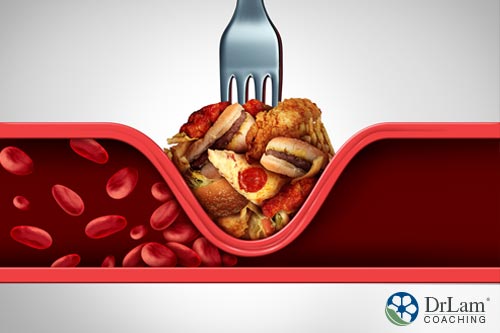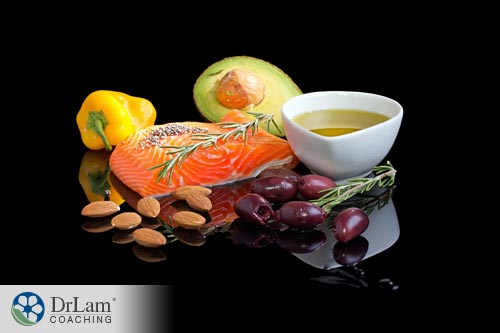 In most cultures around the world, and possibly in your home too, food and drink are significant. Think back to the last memorable activity you had. Was this activity a special dinner surrounded by friends and family? Did your holidays include an elaborate meal? The question must be answered: was the event the memories that were created or was it the food? The answer would seemingly be the memories, because why would the presence of food have so much influence in your life? The real answer is not that simple. Food issues can chain you down with little warning because exciting and mundane events happen in the presence of food.
In most cultures around the world, and possibly in your home too, food and drink are significant. Think back to the last memorable activity you had. Was this activity a special dinner surrounded by friends and family? Did your holidays include an elaborate meal? The question must be answered: was the event the memories that were created or was it the food? The answer would seemingly be the memories, because why would the presence of food have so much influence in your life? The real answer is not that simple. Food issues can chain you down with little warning because exciting and mundane events happen in the presence of food.
The day is begun by breaking a fast, and you call it breakfast. Some occupations do not offer break times, but others give 30 minutes for lunch. Dinner is usually marked by the grandeur of the food. Holidays are punctuated by large roasted birds or slices of ham. The fourth of July is marked by fireworks and barbecues. Picnic baskets line the parks on Memorial Day, and glasses of bubbly mark the beginning of the New Year.
When considering healthy eating, a true life-long goal that is very worthy, it is often separated from reality. Healthy meals are for dieters, and real food in every other occasion is the typical thought. It is no wonder that food issues are so prevalent in American culture.
It can be thought that if you have a perfect figure and you’re skinny with halfway decent looks, then you do not struggle with food issues. Only the obese people struggle. Sadly though, that is very far away from the truth. All people can have food issues, it does not depend on the size, color, shape, or frame of a person.
The beginning of food issues can be traced back to early childhood for most people. For some people’s grandparents who lived through the Depression of the 1920’s, food was very scarce. Therefore everything was used, and nothing was wasted. Plates were eaten cleaned, or punishments would be doled out if there were leftovers. Some children are naturally good eaters and seem to like everything. This action brings smiles from the adults, and favorite foods are given in larger and larger quantities. Weight slowly begins to build over time, until one day, they arise with a diagnosis of being overweight.
Childhood peers influence food issues. It was once name-calling and cruel jokes, but now it has become cyberbullying through social media outlets and guilting others into a false idea of what others think they should be. The rise of super-skinny supermodels has encouraged everyone to be as thin as possible.
 Young and older adults do not have an easier time dealing with food issues. The ingrained patterns from childhood leave painful scars that can be almost impossible to overcome. Harsh, unwanted comments about size or food choices are emotionally very painful. It is easy to look at quick, fad diets promising unnatural weight loss. The ever-emerging trends of scientific discoveries have not helped a culture bent on food and have led to patterns of yo-yo dieting or extreme eating. Some have said that all fats are bad. Become a vegan! Eggs have too much cholesterol. Butter is unhealthy. Artificial sweeteners are safe. Do not eat carbs. Only eat Paleo, Keto, Pescetarian, or Atkins! The advice continually changes, and people are baffled!
Young and older adults do not have an easier time dealing with food issues. The ingrained patterns from childhood leave painful scars that can be almost impossible to overcome. Harsh, unwanted comments about size or food choices are emotionally very painful. It is easy to look at quick, fad diets promising unnatural weight loss. The ever-emerging trends of scientific discoveries have not helped a culture bent on food and have led to patterns of yo-yo dieting or extreme eating. Some have said that all fats are bad. Become a vegan! Eggs have too much cholesterol. Butter is unhealthy. Artificial sweeteners are safe. Do not eat carbs. Only eat Paleo, Keto, Pescetarian, or Atkins! The advice continually changes, and people are baffled!
Television commercials are also to blame for the many food issues that people have. Sunday Night Football advertises mouth-watering, hot pizzas. Light Beers that will surely make your party fun and the talk of the town! If you are really hungry, try a triple-hamburger loaded down with bacon. Or, how about a frozen treat of ice-cream filled with your favorite candy bars? Adults may have more willpower than children, but after a long day, no one wants to fix a healthy meal when fast food can be delivered to your door.
What goes into your body affects your body. Positively or negatively. It does not matter, everything that you do has some sort of effect. When considering the impact that food has on your body, it is quite significant. Eating the wrong foods can increase the inflammation. Some of the most notorious foods are
Inflammation is characterized by four hallmark events: these are pain, redness, swelling, and heat. They are physically seen and felt when something harms the body. Inflammation is different than infection, even though they are often present together. The inflammation is there to fight off the infection, and it is vital for the body to survive. The symptoms that inflammation causes may not be pleasant, but they are a sign that your body is doing what it should. The presence of bacteria, viruses, and stress cause the body’s defenses, controlled by the NeuroEndoMetabolic (NEM) Stress Response, to mount a counterattack.
The NEM Stress Response is similar to a control unit keeping watch over the body. It communicates via six different circuits by sending help to the entire body to produce hormones as needed, speed the body up, or slow it down. These are the bioenergetics, hormone, detoxification, inflammation, cardionomic, and neuroaffect circuits. The inflammation circuit, under the control of the NEM Stress Response, utilizes the immune system, digestive tract, and microbiome system (good bacteria to provide immunity and assist with digestion). And while inflammation is often thought of only the external redness that is seen after you skin your knee, the same response happens when the body is given the wrong types of food. Inflammation occurs internally as well. The NEM signals the immune system to flood the digestive tract with increased fluid and white blood cells to help fight off the stress. This can cause symptoms such as abdominal pain, nausea, vomiting, and diarrhea. The pain is from the pressure that the increased fluid is causing inside the tissues, and (sometimes) heat can be felt externally as a burning sensation or a hot-spot. While vomiting and diarrhea are unpleasant, this is how the body is removing the foreign invaders from the body. In the acute (short-term) phase, the inflammatory circuit is very helpful to the NEM Stress Response to heal the problem and allow the body to return to normal.
 Over the course of many months and years, the acute problems become chronic (long-term) as the body becomes unbalanced. The inflammation process is not turned off because the body is not healing as it should. Over time, the body cannot absorb the right nutrients in the digestive process, and digestive issues can arise due to constant presence of inflammation. Food issues can be seen as leaky-gut problems, irritable bowels, food allergies (such as allergies to gluten, dairy, and soy), and autoimmune diseases. The microbiome environment is also greatly affected by food issues. The unhealthy bacteria in the gut begin to proliferate faster than the healthy bacteria can fight against it, thereby causing more difficulties with digestion.
Over the course of many months and years, the acute problems become chronic (long-term) as the body becomes unbalanced. The inflammation process is not turned off because the body is not healing as it should. Over time, the body cannot absorb the right nutrients in the digestive process, and digestive issues can arise due to constant presence of inflammation. Food issues can be seen as leaky-gut problems, irritable bowels, food allergies (such as allergies to gluten, dairy, and soy), and autoimmune diseases. The microbiome environment is also greatly affected by food issues. The unhealthy bacteria in the gut begin to proliferate faster than the healthy bacteria can fight against it, thereby causing more difficulties with digestion.
As the NEM Stress Response sends continual help, eventually, it begins to tire and wane in its response. One major concern that can arise is Adrenal Fatigue Syndrome (AFS). AFS is a disorder that originates from the body’s depletion of its healthy stores and symptoms begin to insidiously show up. One of the body’s ways to stop the inflammation process is from cortisol. The adrenal glands produce this hormone, and it is a powerful anti-inflammatory agent. Instead of the hot, fiery-red inflamed response, this provides a cooling-off approach and helps return the body back to normal. The more stress that the body has, the greater amount of cortisol is present in the body. However, cortisol is not made endlessly. Without the proper nutrients, rest, and healing, the body can start to run out of cortisol.
Initially, AFS symptoms may only be minor irritations such as feeling more tired than usual, needing more coffee in the morning to get going, an increasing feeling of sadness and anxiety, or a vaguely upset stomach that comes and goes with no rhyme or reason. The exact causes are difficult to pinpoint because the symptoms do not follow traditional paths, i.e., a common cold, stomach bug, or recent illness. Your friends and family may suggest that you should “just get more rest” to alleviate the tiredness. You may be tempted to ask for antidepressants to help deal with the stressors that you are facing. However, just getting more rest or taking medication without finding the root cause of the symptoms will not alleviate the true problems. Stress, whether from food issues or emotional causes, that is not dealt with successfully is harmful to the body. The increasing levels of stress worsen AFS and the already taxed NEM Stress Response fails even more. The more that AFS is ignored, the more severe and numerable the symptoms become.
Worsening signs of AFS can include
It is important to note that none of these individual symptoms can determine AFS, but a trained provider can look at these collectively and see if it is a possibility for you. If you are struggling with these symptoms, seek out help today.
Albert Einstein once said, “Life is like riding a bicycle. To keep your balance, you must keep moving.” The truth of this quote is profound on many levels. Life is all about balance, and it requires you to keep going forward (literally and figuratively!).
 An excellent emotional balance of food may be the hardest balance issue of your life. It requires some deep thinking to see why you make the choices about the food issues that you have. If you think you do not have a problem surrounding food, think again. Take a week or two, and write down everything that you eat for those two weeks, and when you ate them. As you look over the diary, ask yourself, “Why did I choose that food item?” Did you choose fast food because you were running late to work? How about the extra-large cappuccino with flavored creamer? Was it because you needed a sugar pick-me-up to get through the day? These answers will give you a picture of what your food issues are.
An excellent emotional balance of food may be the hardest balance issue of your life. It requires some deep thinking to see why you make the choices about the food issues that you have. If you think you do not have a problem surrounding food, think again. Take a week or two, and write down everything that you eat for those two weeks, and when you ate them. As you look over the diary, ask yourself, “Why did I choose that food item?” Did you choose fast food because you were running late to work? How about the extra-large cappuccino with flavored creamer? Was it because you needed a sugar pick-me-up to get through the day? These answers will give you a picture of what your food issues are.
The emotional attachment to food is complicated to overcome. You may want to seek help from a healthcare provider or coach to help you work through the questions (and many others that may arise) as you begin to unpack the answers.
Avoidant tendencies are another response to the pain associated with food issues. These would be missing those social events or keeping yourself to a strict dietary lifestyle similar to a hermit stuck in his cave. You are missing those enjoyable activities and memories because you become so focused on food. Living your life is not about fanatical adherence to a set of dietary rules unless that is something that you unselfishly choose for yourself, but carefully enjoying life in a balanced way.
A good exercise program that is consistent is the best way to keep going as Einstein encouraged. Even if it is something as simple as walking three times a week, it is better than running once a month. The body needs consistent exercise to heal.
Balance in food choices is not starting a new diet with harsh rules, and neither is it entirely avoiding everything that you love, it is choosing foods with moderation. When you remove large portions of your regular diet quickly, you create cravings. This is due to the body sensing a loss or a famine-like approach. The body wants to protect itself at all cost to return yourself to where you once were.
Some great suggestions to create a healthy balance are
Young children have versatile appetites if a healthy appetite is encouraged to develop and not enabled to be picky. The more you serve a child with the same foods of pizza, macaroni and cheese, and chicken nuggets, the more they will only want to eat that. However, as you slowly stop buying those items and start cooking with healthy alternatives, the child can adapt.
The same rule applies to adults. The one who grocery shops has the power to control what the family eats. As you slowly add new recipes, vegetables, tasty salads, baked meats instead of fried, and yummy fruity desserts instead of ice-cream, you create positive choices. Daily positive choices end up being good life-long habits.

This is a very versatile vegetable. It can be turned into a steamed vegetable, a pizza crust, or even garlic “bread”.
A delicious nutty milk that can replace the cow's milk for cereal. This can also be baked with or used as a filler for pudding. There are other alternative milks such as coconut milk, rice milk, hazelnut milk, or oat milk.
These would be organic free-range chicken breast, turkey, salmon, tuna, and grass-fed beef.
Beans are an excellent addition to soups and provide anti-inflammatory properties.
Carrots, celery, apples, grapes, strawberries, and blueberries are delicious quick items that are so much healthier than potato chips.
The higher the amount of cacao that is present, the healthier the chocolate is for you.
Instead of buying white sugar, use stevia, date sugar, pure maple sugar, molasses, or even agave syrup.
Brown rice of all species, quinoa, amaranth, barley, rye, buckwheat, and steel-cut oats are much healthier than genetically modified wheat, and are low glycemic foods.
For those who still like a little taste with beverages, using all-natural flavored waters and bubbly sodas can be a refreshing alternative to sugar-laden drinks.
Does everyone have food issues?
Maybe. It is up to you to discover the depth of your attachment to food and the subsequent food issues that are found. The more you can release them, the easier it will be to obtain healing for your health.
You may never be able to be completely free of the cultural effects that food has in your life, but you can work to be in control of your emotional attachment to them. Start today, learning how to make wise food choices to help reduce the inflammation that can be present in your body. It can be as easy as adding healthy foods to your shopping list. You have the power to unchain yourself from food issues, and bring a balance of healthy eating to your life.
Maybe. It is up to you to discover the depth of your attachment to food and the subsequent food issues that are found. The more you can release them, the easier it will be to find healing for your health.
